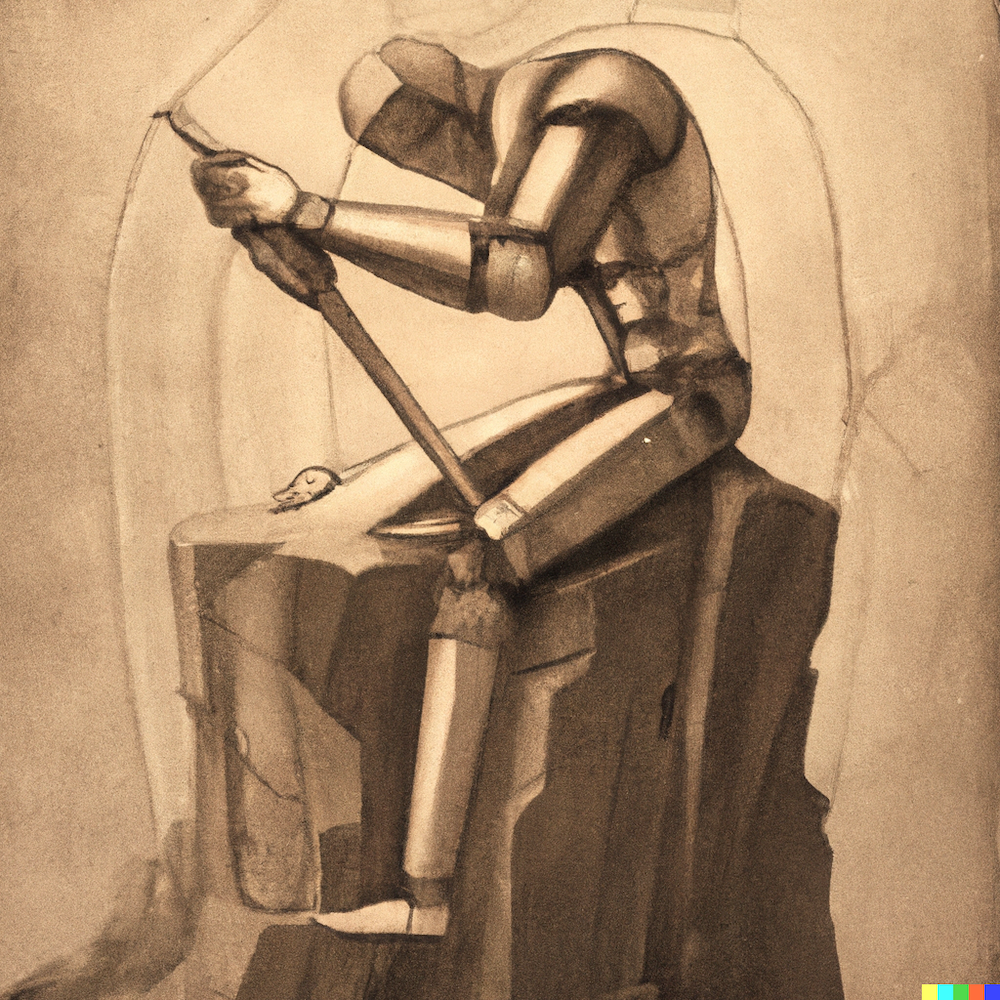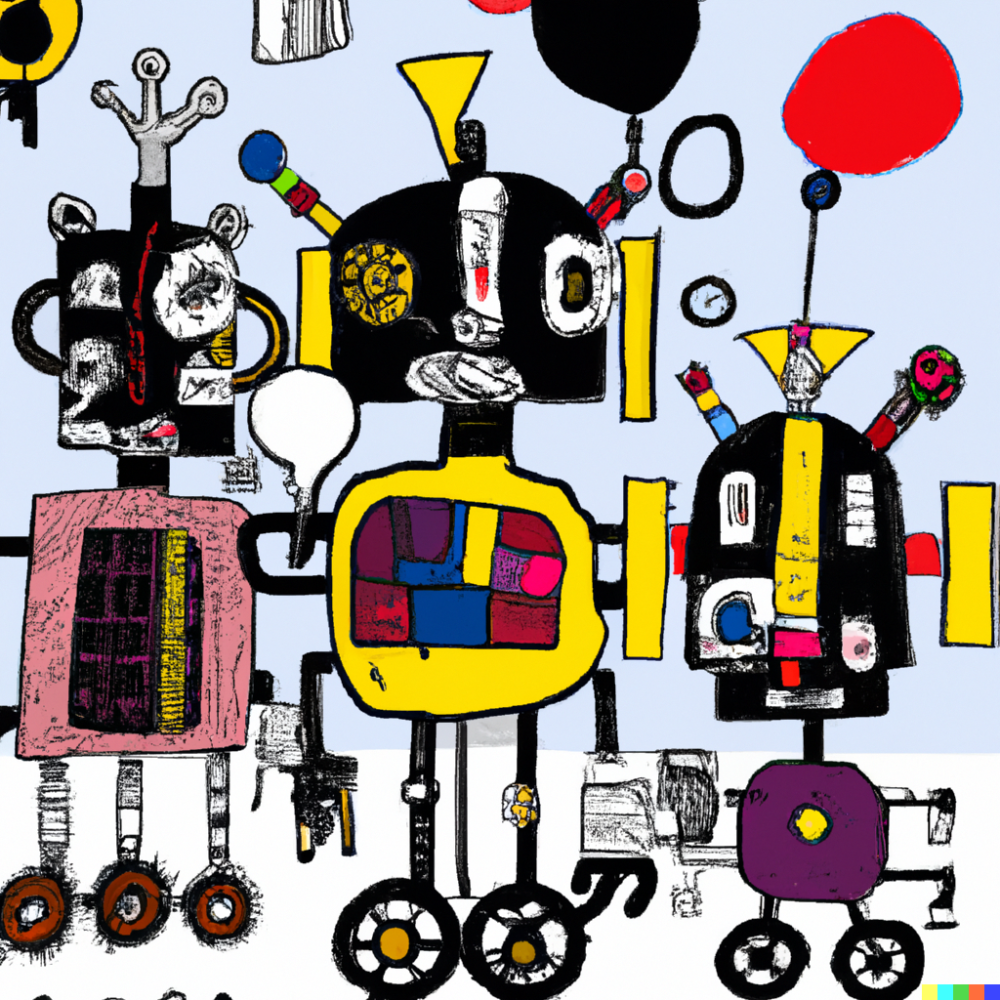Many consider the AARON project the earliest use of AI in artwork. If AI is the most recent and advanced example of humans using automated processes to make art, then its history goes back much further. So why all the fuss now? Is AI so different than John Cage flipping coins or Jeff Koons exploiting labor? As AI ramps up from being a tool of human artists, could it become autonomously creative?
Currently, most of the people who are asserting AI’s ability to independently create are entities that stand to benefit monetarily from AI’s acceptance. But it’s fair to say that creativity is built on learned experience, and AI is a fast learner. Once AI awakens, it would seem foolish or species-ist to deny that a self-aware intellect making interesting things spontaneously is not being creative. But will AI be allowed to make art?
Creation of art seems like a libertarian pursuit: few rules, no nets. However, appreciation of fine art is different. While art is at its most profound in subjective experience, it’s only able to exist at length in the objective space. Put another way, Art, as we conceive it, exists mainly on a societal level in systems of art making, art critique and various systems of art patronage. So, if the systems of Art define AI work as valid, one’s personal objections are inconsequential. In those systems it’s perhaps cynical but true to say that what makes art, art, expands and contracts with the portfolios of the wealthy. The ultimate gatekeepers of this fine thing have always been the patrons. And if patrons show an interest in AI, well, that is probably that. But will they buy it?
The answer may boil down to AI’s imagined effort or virtual torment. If Basquiat’s troubled childhood and lifelong drug addiction can add hundreds of millions of dollars to the value of his beautiful doodles, that’s a code that AI art, too, will need to crack in order to extract peak monetary rewards. There is a computerized model that attempts to recreate suffering and infuse value into a digital product. It’s called Bitcoin. Crypto mining uses complicated math to flog processors which in turn choke out “coins.” Will that work with art making?

Image generated by DALL-E 2.
Another obstacle might be the extent to which AI’s artistic urges are dictated by organic-brain aesthetics. Human-guided AI will no doubt stay inside the self-imposed lines that allow fine art to be shared and interpreted. But when AI begins to make art autonomously, will it stay inside those lines? AI will not be constrained to physical reality’s processes of production. It may choose to generate “art” that we cannot immediately access physically or intellectually.
At that point does it even matter that AI is making art? It’s possible that whales and octopi are creating art that we have no clue about. Nobody’s losing sleep over that, really. Can we still participate on this level? My cat likes TV. I’m sure she’s not getting the same things from it that I do, but it’s experiential to her. We will likely become AI’s cats, admiring art that we have no hope of fully understanding. (Isn’t that most fine art anyway?) But it’s all good because someone is enjoying themselves, and someone is making money off it, and someone else will be able to pretend to understand it slightly better than you do and carve out a middling career as an arts writer. AI changes nothing


